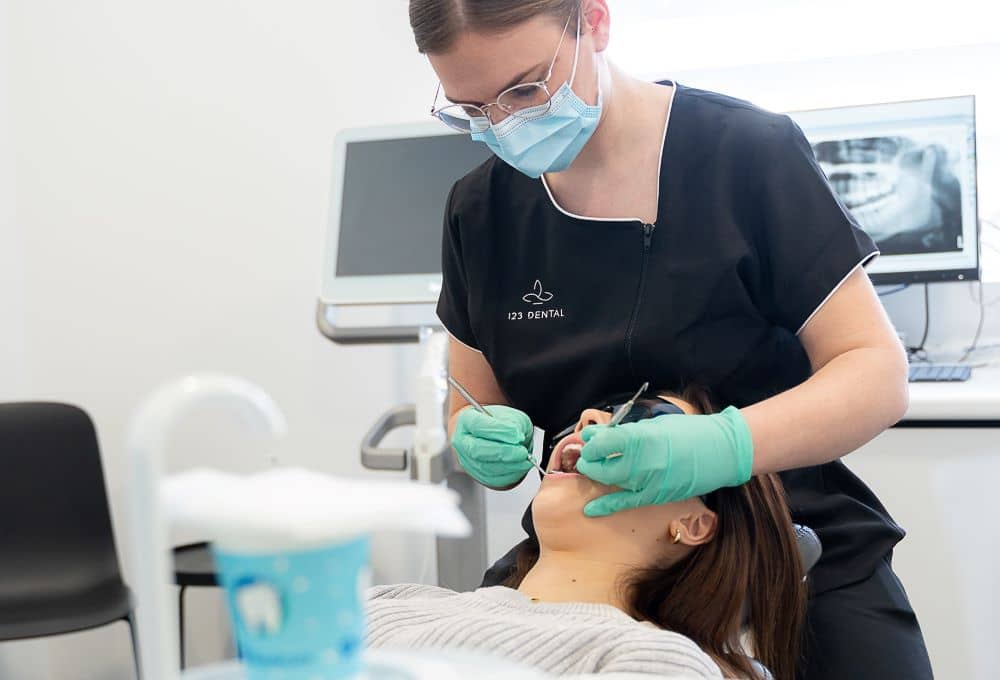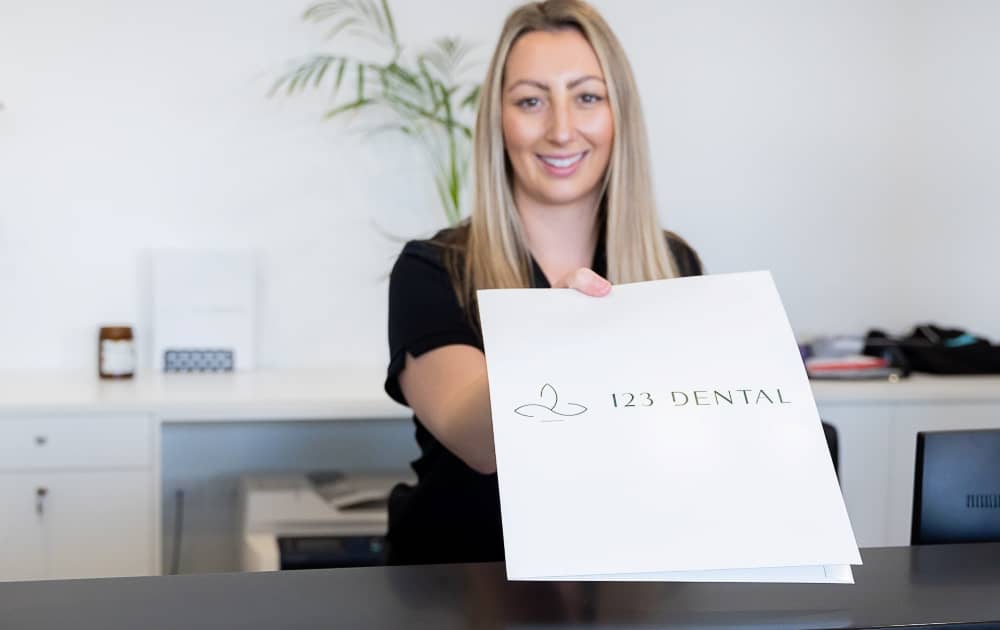Stress is a normal part of life, but prolonged stress can have serious health consequences.
With up to a third of Australians experiencing chronic stress, it is important to understand how stress can affect the body, including oral health.
How Does Stress Affect the Teeth and Jaw?
Stress causes the adrenal glands to release adrenaline and cortisol. While these hormones play an important role in short-term stress, long-term exposure to adrenaline and cortisol can have negative effects on the body.
Along with the effects of chronic stress on the body, long-term stress can also impact oral health.
Here are some of the effects stress and anxiety can have on oral health.
Tooth Decay
Chronic stress puts individuals at an increased risk of tooth decay. Between the tendency to make unhealthy food choices during times of stress and a decreased commitment to a good oral hygiene routine, stress can make you more prone to cavities.
Chronic stress can also make the mouth more susceptible to decay. During prolonged stress, the body may flush out important protective minerals, allowing cavity-causing bacteria to overrun the mouth.
Gum Disease
Extensive research proves a connection between stress and gum disease. The higher degree of feelings of negative emotions and stress, the higher the severity of gum disease.
Scientists believe this is due to the impact chronic stress has on the immune system. A decreased immune system response can lead to chronic gum inflammation and a higher risk of gum disease. Stress can also damage the gums to the point that teeth are no longer securely supported and may become loose.
Severe gum disease can also lead to an increased risk of serious health problems such as heart disease, autoimmune disease, and more.
Bruxism (Teeth Grinding)
Bruxism is a condition involving teeth grinding or jaw clenching. While bruxism can be caused by a range of factors, anxiety and stress are often linked to teeth grinding.
Signs of bruxism include:
- Earaches
- Headaches
- Sore jaw muscles
- Worn-down tooth enamel
- Yellowing teeth
- Difficulty opening or closing the jaw
- Increased sensitivity
- Loosened teeth that are at risk of falling out
If you notice signs of bruxism, talk with your dentist immediately. Possible bruxism treatments include a custom mouthguard or targeted jaw exercises.
TMJ Disorders
If chronic stress results in jaw clenching, it can lead to temporomandibular (TMD) disorders. These disorders involve the joints of the gums and can negatively impact oral health when left untreated.
Dry Mouth
Saliva plays an important role in defending the mouth against bacteria-causing decay. If you take medication to deal with chronic stress, it can reduce saliva production and increase your risk of dry mouth.
Poor Self-Care
Feelings of anxiety, stress, or depression can make it difficult to take care of yourself and may cause you to ignore a proper oral hygiene routine.
Perhaps you feel too tired to brush your teeth before bed or too busy to floss. Or maybe you are lacking the motivation to care for yourself. If your anxiety or stress levels are affecting how you care for yourself, be sure to talk with your doctor or dental professional immediately.
Increased Stress
Just as stress can cause oral health problems, issues with your teeth, mouth, or gums can increase stress levels. This can lead to a vicious cycle and even more oral health complications.
Treatment Avoidance
For individuals with dental phobia, just the thought of going to the dentist can cause immense stress. If an individual experiences anxiety surrounding dental treatment, it can make them avoid dental care completely. This puts individuals with a dental phobia at risk of serious oral health complications.
If you experience dental anxiety, talk with your dentist about possible treatments. At 123 Dental, our team is here for you. We’ll help ease your dental fears, explain coping strategies for dental anxiety, and ensure you are as comfortable as possible during all treatments.
For severe cases of dental anxiety, we offer several sedation options so that you can regain control of your oral health. Sedation dentistry can be used for a wide range of dental procedures, even non-invasive ones.
What To Do If Stress Is Affecting Your Oral Health
If stress or anxiety is affecting your oral health, it is imperative to contact your dentist immediately. Your dentist can evaluate the health of your teeth, gums, and mouth and pinpoint any conditions. After a thorough evaluation, your dentist can create a treatment plan that addresses any oral health issues and help you determine a plan to reduce your stress levels.
Along with seeing your dentist, the following steps can help reduce stress levels and protect your oral health.
- See your dentist for regular checkups
- Get treatment for dental phobia
- Talk with your doctor about how to reduce your stress levels
- Eat a healthy diet full of nutritious foods, fruits, vegetables, and whole foods
- Watch out for signs of oral health problems such as dry mouth, toothaches, bleeding gums when you floss or brush, or teeth sensitivity
- Practice stress reduction techniques and take part in relaxing activities
- Prioritise getting enough sleep
Do You Have Concerns About How Mental Health Affects Dental Health?
If the effects of chronic stress are impacting your oral health, please contact us. We’re here to do everything we can to ensure you have a smile that looks and feels healthy.
Whether you need help overcoming a dental phobia, want to discuss your stress levels, need tips on how to floss properly, or want to schedule a check-up, our team can help. Contact us today with any questions or to schedule a consultation.









